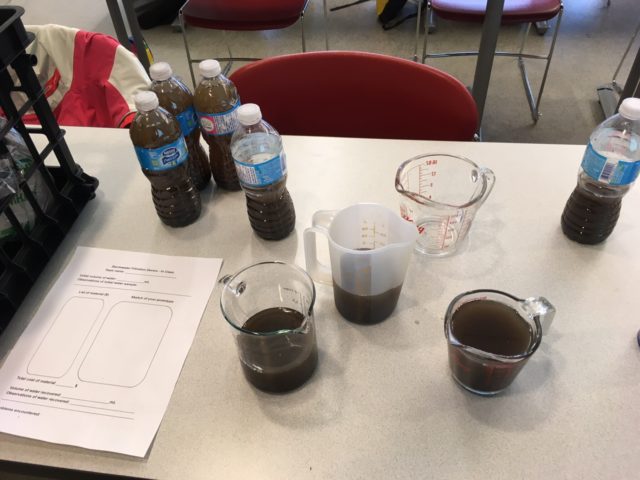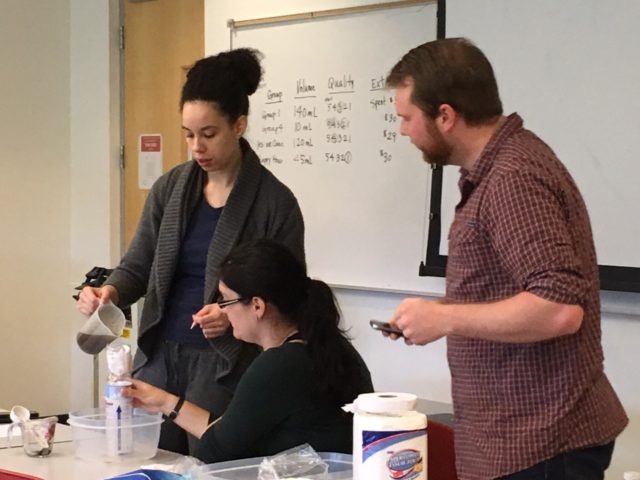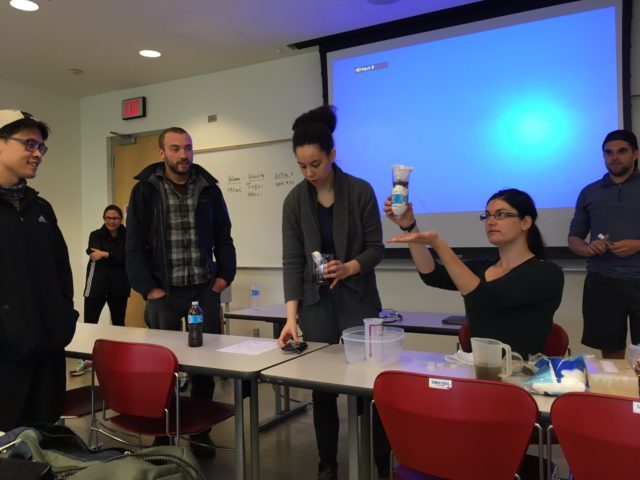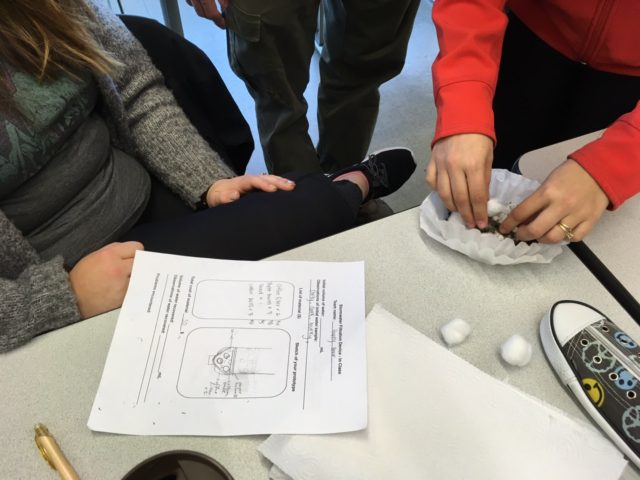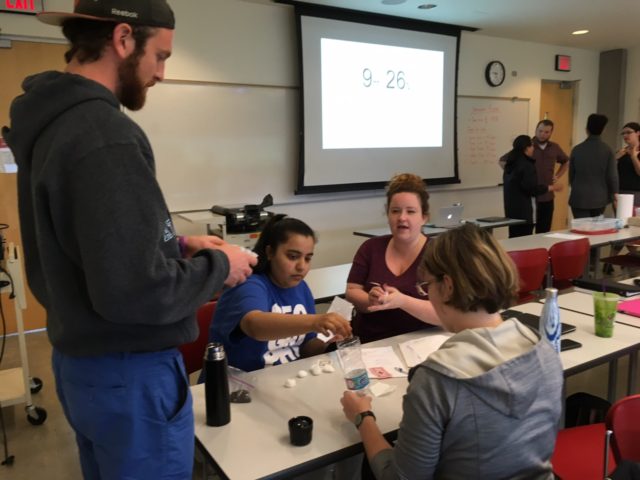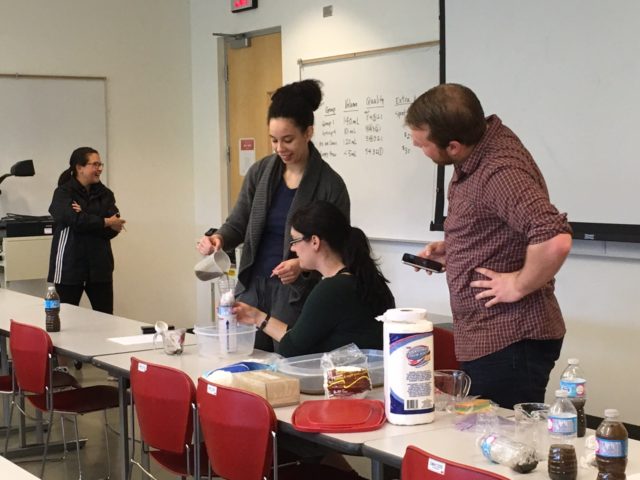Embedding Environmental Education
Week 6 – EDUC454D100 – June 13, 2017
This is a meta question for me… How am I going to embed outdoor education into my practice? This is the nature of EDUC 454. The course is called “Quantitative Approaches to Environmental Education.” I love the idea of students taking their learning into their own hands and becoming the experts in the field. This photo above is our third group facilitation. Their learning activity was looking at stormwater at SFU. I learned a tonne about stormwater, urban planning, and design.
This group nicely facilitated the learning activity with background information via direct instruction, challenged groups with experimentation, and organized a field trip to see an example of how SFU handles stormwater on campus. The activity was well prepped and researched. I loved the collaborative learning during class and can imagine the collaborative learning that was required to create and develop this lesson plan. In the photo above, the group members were “measuring” how well each team did with the stormwater challenge. The goal was to design a system that would minimize water flow and maximize filtration given limited resources and budget.
This group facilitation could have taken the entire class… much like the other two group facilitations. The stormwater activity lent itself to many topics and my BIG takeaway was that each teacher in the collaboration could do their “spin” or subject speciality on the issue. One class can talk about the effects of storm water on the ecosystem, another class can discuss urban planning, while another class could discuss politics and policy. Much conversation (aka. learning opportunities) could be derived from what we learned today. Even though this group as well as the two previous groups had to make adaptations to their lesson plan to “make things happen” within the time constraints, all of the groups so far have excelled.
This is how I am embedding environmental education into my practice. Yes, it is part of my course description, but I do not proclaim to be an environmental education subject specialist. I am a secondary mathematics teacher completing my doctorate degree in educational leadership teaching a course in quantitative approaches to environmental education. I am trying to embrace the ideals of BC’s New Curriculum as a sessional instructor with pre-service teachers. I am learning as my students are learning. I am creating space for my students to learn about what they are interested in and share what they have learned with the class that is interdisciplinary.
I am not the expert… my students become the experts… and I facilitate that learning. My students are working at a high level of inquiry and collaboration. I appreciate their willingness to participate, to explore, and to question. I must admit, being a “guide on the side” versus the “sage on the stage” is a pedagogical shift for me. You have to give up full control of your class and intended learning outcomes… and trust that your students can be the lead learners as a cooperative group. I have an idea what the students are planning to do each week, but I don’t have the details, nor do I have much say in the details (except for the loose framework of expectations).
I also appreciate the learning environment that’s being established. For example, I picked a “crappy” article (and possibly more to come) for this week (and last week) and it was clear based on student feedback that it was a crappy article for many reasons. My intentions was to find an article that connected environmental education with social emotional learning, but it was all-in-all, a crappy article. There was much concern amongst the students (and for me too… I would rather read articles about assessment, curriculum, and leadership… but, that’s not the course). The reading reflection session could have been potentially horrid, but the students spun the article around and in turn exemplified all three Core Competencies. It was absolutely amazing. Critically thinking… communicating their thoughts and beliefs… and a deep desire to connect with readings that are local and relevant. MESSAGE RECEIVED.
